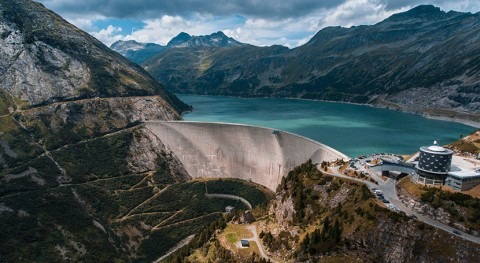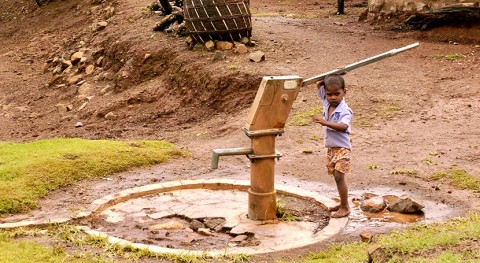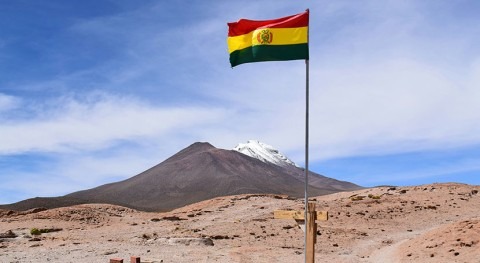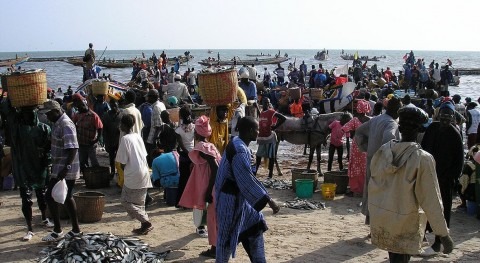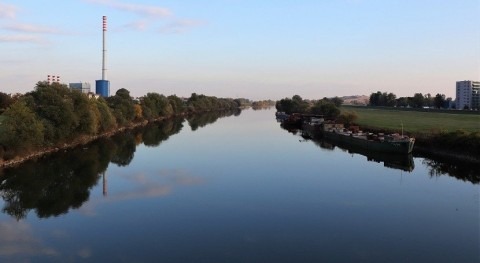The World Bank Board approved $600 million in financing to support Türkiye’s efforts to protect people and strengthen resilience against floods and drought, which are increasing in frequency and intensity due to climate change.
The Türkiye Flood and Drought Management Project will help increase flood control for people living in flood-prone areas, enhance farmers’ drought-monitoring capacity, and strengthen the country's institutional capacity for flood and drought risk management.
The flood control component will directly benefit over 150,000 people living in seven river basins, which are highly prone to flooding, while 10,000 farmers will be provided with vital drought monitoring data, including real-time data, to help them better manage water stress.
Floods, which now account for almost 30% of all natural disasters in the country, have been wreaking extensive economic damage and resulting in growing loss of life. Drought is another key challenge, particularly for Türkiye which is the world’s 9th largest producer of agricultural products.
“Türkiye is increasingly recognizing the importance of taking action on climate change. The World Bank is delighted to support Türkiye in its wide-ranging efforts to build resilience against climate-related risks to protect people and the economy as well as achieve the country’s target of becoming carbon neutral by 2053,” said Humberto Lopez, World Bank Country Director for Türkiye.
The Türkiye Flood and Drought Management Project will contribute to addressing climate-related challenges by supporting:
- Construction and rehabilitation of flood control infrastructure, and piloting nature-based solutions. These measures will be implemented in 7 river basins areas in the North Aegean, East Black Sea, Kizilirmak, Buyuk Menderes, West Mediterranean, East Mediterranean and West Black Sea.
- Improvement and expansion of flood monitoring, forecasting and warning systems in the country.
- Real-time agricultural drought monitoring will be piloted in the Ceyhan basin, with plans for expanding to other areas. Installation of meteorological and soil moisture monitoring stations, and other off-farm data sources will be leveraged to optimize irrigation water usage and enhance drought resilience, while drought monitoring maps will assist farmers improve water use efficiencies and crop diversification, and irrigation efficiency.
- Capacity development, institutional strengthening, and improved coordination of various relevant government agencies other relevant stakeholders.
“Flood and drought management is a priority area for Türkiye and this project focuses on outcomes that will increase climate resilience to these natural disasters, which are occurring with increasing frequency and intensity,” said Canan Yıldız Uz, one of the World Bank Project Team Leaders.
The World Bank is an important and reliable partner for Türkiye in disaster risk management, municipal infrastructure, water resources management, housing, and health. Other World Bank-financed projects currently underway include the Türkiye Earthquake, Floods and Wildfires Emergency Reconstruction Project supporting green and resilient reconstruction in municipalities affected by disasters in 2020 and 2021; the Climate and Disaster Resilient Cities Project supporting resilient housing and municipal infrastructure in hazard-prone cities; the Disaster Risk Management in Schools Project and the Seismic Resilience and Energy Efficiency Project that strengthen the resilience of schools and public buildings, respectively, and the Health Systems Strengthening and Support Project to improve primary and secondary prevention of non-communicable diseases; Irrigation Modernization Project and Water Circularity and Efficiency Improvement Project which aim at improving irrigation efficiency in selected schemes and piloting reuse of treated wastewater for irrigation.






